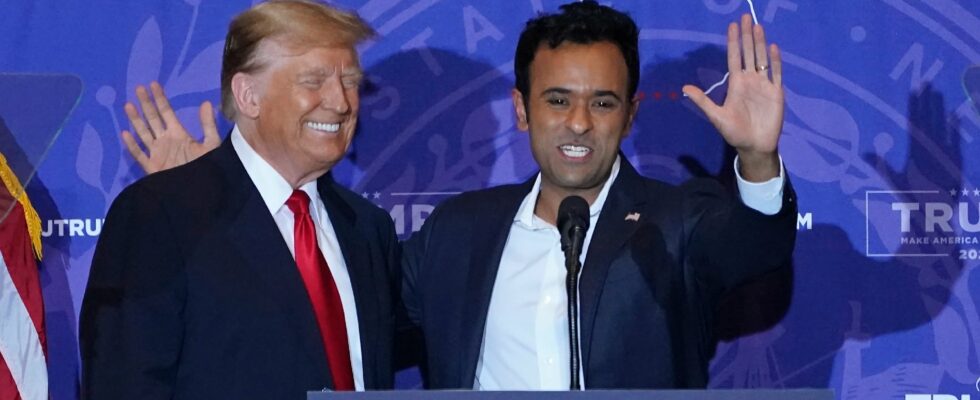The appointment of investor Sriram Krishnan to the post of advisor to the White House on artificial intelligence has set the tide unleashed “America First”. Isolationist and anti-immigration, his supporters immediately brought out a tweet where Donald Trump’s new expert asked to lift all restrictions on qualified immigration. Ignoring that the frontier of productivity is drawn by a small number of people. Those who will make breakthrough scientific discoveries, create or join fast-growing companies, get involved in the government or senior administration of a country.
These talents are more mobile than ever. With the generalization of higher education, the diploma becomes an insufficient indicator for judging a person’s ability to contribute to the economic growth of a country. The appetite for risk, the taste for effort, the questioning of the status quo are characteristics at least as important as strict academic performance.
This is where the debate crystallized in the United States. Computer science professors at American universities have pointed out that even their very good students face a complex job market. And were responded to by entrepreneurs like Vivek Ramaswamyin charge of the Department of Government Efficiency alongside Elon Musk, that the culture of excellence brought by migrants from East and Southeast Asia would lead their children to contribute more to society.
Europe, a reservoir of talent for Silicon Valley
In 2016, children with a parent on an H-1B visa accounted for 30 of 40 finalists in the Intel Science Talent Search, one of the most prestigious science competitions for high school students in the United States. At the 2024 International Mathematics Olympiad, the U.S. team – four of the six members of which were of Chinese descent – ended a decade of China’s rule.
The United States was built thanks to talents from abroad. A third of American Nobel Prize winners are immigrants. A ratio found in the population of researchers and engineers in Silicon Valley. Since 2000, 1 in 2 American unicorns have been founded or co-founded by immigrants. According to the US National Security Commission on AI, the number of US-born PhD students in artificial intelligence has not increased since 1990. The increase is only due to foreign researchers. In the competition for technological supremacy, this contribution is essential. China has a significant advantage with its education system, producing twice as many master’s and doctoral students in science, technology, engineering and mathematics each year as the United States. And the country launched, in 2016, the “thousand talents plan” to recruit foreign experts in science and technology, mainly among the Chinese diaspora.
The United States has largely been able to count on Europe as a reservoir of talent. The European expatriate community has been stable for almost fifty years – around 5 million according to the Migration Policy Institute. The decline in immigration from Western and Southern Europe was offset by the increase in immigration from Eastern Europe, after the fall of the Soviet bloc. But the question now is to attract talent from emerging countries, which are multiplying with the generalization of higher education. A famous example is that of Erdal Arikan, a Turkish graduate from the Massachusetts Institute of Technology who was unable to stay in the United States and turned to China. His research was decisive for the deployment of 5G by Huawei, which today holds more than two-thirds of the patents related to Arikan’s solution.
The talent immigration system in the United States is dysfunctional, whether it is the allocation of H-1B visas by lottery, the 7% cap on green cards to the same country or the bureaucracy of a system that makes you wait candidates six years on average. This is the project that Donald Trump intends to tackle. He settled the debate by declaring himself in favor of unlimited immigration of the most qualified to the United States.
Robin Rivaton is Managing Director of Stonal and member of the Scientific Council of the Foundation for Political Innovation (Fondapol)
.
